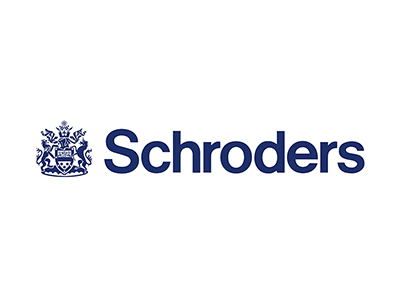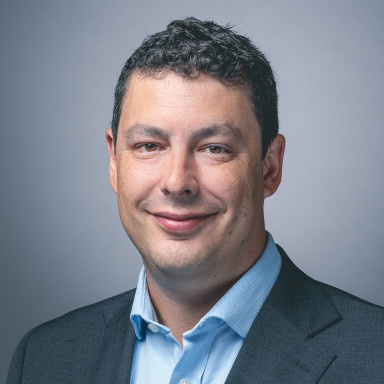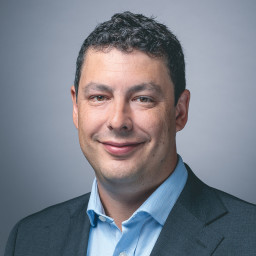The fund taps into the expertise of several experienced managers at Schroders
It provides a high level of diversification in one convenient investment
It’s focussed on shares, with some other investments in bonds and commodities
This fund is on the Wealth Shortlist of funds chosen by our analysts for their long-term performance potential
How it fits in a portfolio
The Schroder Managed Balanced fund mainly invests in funds run by other managers at Schroders and provides exposure to a broad range of assets including global shares and bonds. We think this fund could form the core of a broader portfolio aiming to deliver long-term growth, or add some stability to a portfolio mostly invested in shares.
Manager
This fund is managed with a team-based approach, with Johanna Kyrklund, Remi Olu-Pitan and Nick Pearson serving as fund managers.
Kyrklund is currently Chief Investment Officer and leads Schroders' Multi-Asset Investments division. She joined the company in 2007 and has specialised in asset allocation strategies throughout her career. It was recently announced that she will be appointed to the board of directors and will be adding further responsibilities to her role.
Olu-Pitan is Head of Multi-Asset Growth and Income. She started her career in 2006 when she joined Schroders. In practice, Olu-Pitan has historically handled the day-to-day management of the fund, with Kyrklund providing input into asset allocation decisions and challenge to Olu-Pitan around portfolio construction.
Pearson has joined Kyrklund and Olu-Pitan to help run the fund. He has worked at Schroders since 2015, including implementing trades on behalf of the managers for this fund. As his role has developed he’s taken on more responsibility and now has input into idea generation and decision making on this fund.
The three managers all show a passion for multi-asset investing. It’s clear that Pearson has integrated well into the team and is now heavily involved in the day-to-day management of the fund.
We view this as important because Kyrklund’s seniority at Schroders means that she has less time to focus on fund management than she used to. Her appointment to the board, and the additional responsibilities that come with such a role, only add to her workload.
Process
This is a 'fund of funds'. The managers primarily invest in funds run by other talented Schroders fund managers, although they can also invest outside of the Schroders range where necessary. Collectively those managers invest in hundreds of different companies and bonds. This means the portfolio offers plenty of diversification.
Kyrklund is the Chair of Schroders' Global Asset Allocation committee. They meet regularly to decide how much to invest in different areas and assets. In forming their views, this committee leverage analysis and insight from a number of specialist in-house teams.
They tend to favour shares when the economic environment is positive. But in times of stress, they shift to more diversified assets, such as bonds and cash, aiming to minimise losses.
Once the Asset Allocation Committee has recommended where and how much to invest, the managers seek to identify several different funds that reflect those views. Every fund must be expected to enhance returns or reduce risk to justify its place in the portfolio.
Over the past year, the managers have increased the amount invested in company shares and reduced investments in bonds. Within the shares part of the fund, the managers have increased exposure to global equity funds, largely in favour of reducing specific investments in US and Japanese stock markets. Within the fixed interest part of the fund, the managers have reduced their investments in developed and emerging market government bonds. They have kept the amount invested in bonds issued by companies at roughly the same level. At the end of August 2024, the fund had 68.7% invested in shares, 15.6% invested in fixed interest and 11.6% invested in alternative investments such as commodities.
As things stand, the team have a positive view on company shares, with company earnings in the US continuing to improve. They also have a positive view on gold and have added some small, specific, investments into physical gold.
Please note that the managers' freedom to invest in high yield bonds, emerging markets and derivatives adds risk. Investors should be aware that the fund currently invests in Hargreaves Lansdown plc.
Culture
Schroders is a multinational asset management company that employs hundreds of investment professionals across the globe. The managers of this fund can tap into that experience and local knowledge to help them make investment decisions. Schroders is home to many high calibre fund managers, so Kyrklund, Olu-Pitan and Pearson have plenty of good funds to choose from.
Kyrkund and Olu-Pitan have both remained loyal to the company for well over a decade, and the broader team has remained stable too. Pearson already has nine years with the company too. They're all incentivised in a way we think aligns their interests with those of long-term investors.
ESG Integration
Schroders has invested significantly in ESG resources and tools in recent years. Each investment desk has access to a variety of data sources that have been brought together into a proprietary platform called SustainEx, which allows investment teams quantify a company’s positive and negative contributions to society. The ESG agenda at Schroders has significant support from senior management, and in 2019, the firm completed its acquisition of impact investment specialist Blue Orchard. That said, it was recently announced that CEO Peter Harrison would step down in November 2024, to be replaced by Finance Chief Richard Oldfield. It remains to be seen what impact this will have on the firm’s approach to ESG, but we will monitor this closely.
All Schroders funds were required to pass the firm’s inhouse ESG accreditation process by the end of 2020. All new funds must also be ESG accredited, and investment teams must reapply for accreditation on an ongoing basis.
The ESG accreditation process is managed by the Sustainable Investment team. They sit on the investment desk and are objective in their approach. There is a set list of criteria that funds must meet to become accredited, and the process is substantial – no fund has ever gained accreditation on the first attempt. Fund managers are also expected to demonstrate improved levels of ESG integration over time.
The Schroders Sustainable Investment team acts as a focal point for ESG, proxy voting, and engagement. When it comes to proxy voting, Schroders has structured policies in place and is transparent on the reasons proposals have been voted against. On the ESG engagement side, the firm’s activities and outcomes are monitored, tracked and reported in its quarterly Sustainable Investment reports and annual Sustainability reports. There are also a range of ESG-related insight and thought leadership articles available on the firm’s website.
While ESG is integrated across the firm, this fund is not a specialist responsible or sustainably invested fund.
Cost
This fund has an ongoing charge of 0.93%. But through Hargreaves Lansdown you can secure an ongoing saving of 0.61%. This means you’ll pay an ongoing charge of 0.32%. We think the fund is attractively priced compared to its peers in the IA Mixed Investment 40-85% Shares sector. The fund discount is achieved through a loyalty bonus, which could be subject to tax if held outside of an ISA or SIPP. The HL platform fee of up to 0.45% per year also applies, except in the HL Junior ISA, where no platform fee applies.
Performance
The managers aim to deliver performance that doesn’t stray too far from the broader IA Mixed Investment 40-85% Shares sector. Overall, the fund's outperformed the sector since Kyrklund and Olu-Pitan joined forces in March 2011. It’s returned 122.76%* over this period compared to the sector average return of 114.82%. There are no guarantees that this will continue though, and there have been periods where performance has varied significantly from the benchmark.
The fund has underperformed its peers in the IA Mixed Investment 40-85% Shares sector over the past year, gaining 12.30% compared to 13.94%. Shares have contributed most to fund performance over the period, with most regions adding value. Bonds have also contributed positively to performance, but the smaller amount invested in them means the overall impact has been lower than that of the shares in the fund.
In terms of detractors, currency exposure has held returns back. Much of the fund is invested in shares listed in foreign currencies. Sterling has broadly gone up in value over the 12 months, which reduces the value of investments held in foreign currencies when converted back to Sterling.
Past performance is not a guide to the future.
Sept 19 – Sept 20 | Sept 20 – Sept 21 | Sept 21 – Sept 22 | Sept 22 – Sept 23 | Sept 23 – Sept 24 | |
|---|---|---|---|---|---|
Schroder Managed Balanced | 2.96% | 19.57% | -12.46% | 6.00% | 12.30% |
IA Mixed Investment 40-85% | -0.30% | 16.85% | -10.22% | 5.26% | 13.94% |


